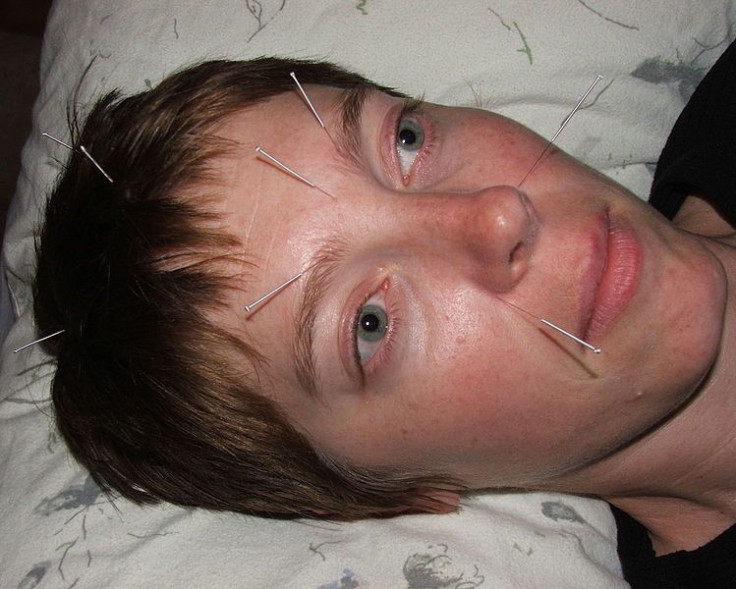Acupuncture May Improve Depression Symptoms, According To Researchers; But Is Their Study Method Faulty?

Roughly 30 to 45 percent of people fail to respond to treatment with an antidepressant, yet limited evidence supports the use of alternative therapies to treat symptoms of depression in a primary care setting. In their efforts to investigate alternative choices for patients, researchers from the University of York found that acupuncture or counseling plus usual care may improve depression symptoms.
Do Antidepressants Work?
Depression is not simply sadness, but a chronic illness that causes a persistent feeling of sadness and apathy. Major depression is a disabling condition that prevents a person from functioning normally and may even affect a person’s ability to work, sleep, and eat. Dysthymia, as defined by the Mayo Clinic, occurs for two years or longer with symptoms that may not be severe enough to disable a person but can prevent feeling well. Minor depression may cause symptoms for two weeks or longer while not meeting the full criteria for major depression, yet it may lead to a full scale episode of major depression.
According to Consumer Reports, roughly 30 to 45 percent of people fail to respond to treatment with an antidepressant, though 55 to 70 percent will, on average, gain at least a 50 percent improvement (decrease) in their symptoms. Some patients, studies suggest up to 30 percent, do not adhere to their medication schedule; other patients do not respond adequately enough. Longer-term studies find that between 30 and 60 percent of the people “fully recover” from depression after taking an antidepressant alone. That said, the majority of people who take antidepressants (63 percent) experience at least one side effect, according to a 2011 analysis conducted by the Agency for Healthcare Research and Quality.
Many patients with depression would simply prefer a non-drug therapy option. In England, counseling is widely used for patients with depression, with approximately half of the 9,000 GP practices employing a counselor. Unfortunately, there is not enough research to fully support this preference. Researchers from University of York attempted to provide more evidence attesting to the effectiveness of alternative treatments, but their study did not truly challenge anti-depressants.
How Helpful Is Acupuncture or Counseling Alone?
In a controlled trial conducted in the North of England, researchers randomized depression patients into three groups. The first group received 12 weekly sessions of acupuncture plus usual care (302 patients). The second group received 12 weekly sessions of counseling plus usual care (302 patients). The final group received usual care alone (151 patients). Usual care, in a primary care setting in the United Kingdom, would consist of treatment by antidepressants and referrals for other treatments. In other words, the patients who received acupuncture and counseling also received anti-depressants throughout their treatment — this study, then, could not be considered a true head-to-head challenge.
At the three-month mark, a significant reduction in average depression scores was recorded for both the acupuncture and counseling interventions when compared with usual care alone. No difference in depression scores existed between the acupuncture and counseling groups. At nine months and 12 months, patients in the usual care group improved, evening out the scores overall. At that point, acupuncture or counseling added to usual care could no longer be considered ‘better’ than usual care alone.
"We have provided evidence that acupuncture versus usual care and counseling versus usual care are both associated with a significant reduction in symptoms of depression in the short to medium term, and are not associated with serious adverse events," Dr Hugh MacPherson, lead author of the study, stated in a press release. Reading carefully, however, this does not seem to be exactly the case.
Source: MacPherson H, et al. Acupuncture and Counselling for Depression in Primary Care: A Randomised Controlled Trial. PLOS Medicine. 2013.
Published by Medicaldaily.com



























